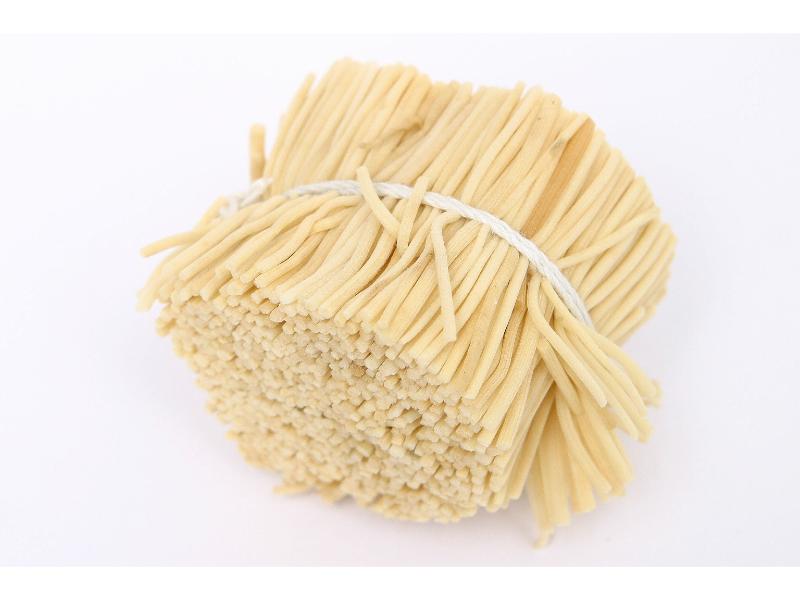Search in medicinals
Junci Medulla
Juncus [pith]
灯心草 〔燈心草〕 dēng xīn cǎo

Alternate English names: bog rush [pith]
Alternate Chinese names: 水灯心 shuǐ dēng xīn; 灯心 dēng xīn; 灯草 dēng cǎo; 灯芯草 dēng xīn cǎo; 灯芯 dēng xīn
Kingdom: Plant
Origin in PRC Pharmacopoeia: Juncus effusus L. (PRC Pharmacopoeia)
Origin in unofficial sources: Juncus effusus L. var. decipiens Buchen. [= J. decipiens (Buchen.) Nakai]; Juncus leschenaultii Gay.; Juncus setchuensis Buchen. var. effusoides Buchen.; Juncus effusus L.*
Use: Medicinal
Category: Water-disinhibiting dampness-percolating agents / Urine-disinhibiting strangury-freeing agents
Properties: Sweet, bland; slightly cold.
Channel entry: Heart, lung, and small intestine channels.
Actions and indications:
- Disinhibits urine and frees strangury: Heat strangury, inhibited urination or rough painful dribbling urination.
- Clears the heart and eliminates vexation: Heart vexation, insomnia, mouth and tongue sores, night crying in infants.
- Additional uses: Dēng xīn cǎo may be used by laryngeal insufflation for throat impediment. It is first subject to nature-preservative calcining and then ground for use in this application.
Dosage and method: Oral: 1.5–2.5g; in decoctions, powders, or pills. Use raw for heat strangury and water swelling. Use coated in
Product description: This product has the form of cylindrical stalks of varying length, 2–3 mm in diameter. The outer surface is yellowish white, with a fine longitudinal grain and diffuse lenticels. The stems, which have no smell, are light in structure, and snap easily, revealing a spongy fracture. The decocting pieces are 3 cm lengths, usually bound in bundles.
Quality: Stems of the best quality are long and thick, light in structure, and whitish in color.
Production area: Guǎngdōng, Jiāngsū, Sìchuān.
Etymology: The name dēng xīn cǎo 灯心草, literally lampwick grass,
reflects a former use of juncus pith.